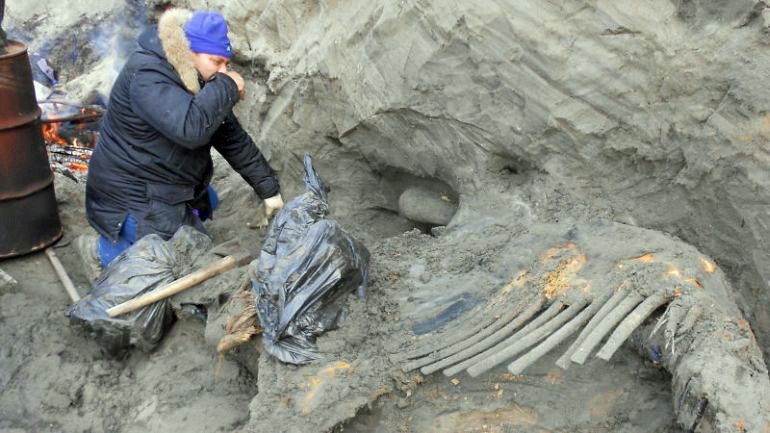
Mammoth find suggests humans active in Arctic 45,000 years ago
ADVERTISEMENT
Led by Alexey Tikhonov of the Russian Academy of Sciences in St. Petersburg, a team of archeologists excavated a carcass of a woolly mammoth in 2012 from the frozen sediments on the eastern shore of Yenisei Bay in Siberia.
Marks on the bones showed that hunters stabbed and butchered the animal. The tip of a tusk was damaged in a way that suggests human activity, perhaps to make ivory tools. It provides perhaps the oldest known story of human survival in the Arctic region, radiocarbon dating a human presence there to roughly 45,000 years ago, instead of 30 - 35,000 years ago, as previously thought, Science magazine writes.
“This is a rare case for unequivocal evidence for clear human involvement,” said lead author Vladimir Pitulko of the Russian Academy of Sciences. “The site is much older than everything known before in the arctic regions, and it is clearly located farther north from the areas where sites of that age have been found. It is about 20 degrees north of any site of comparable age, and this is a big change.”
Mammoths and other large animals, such as woolly rhinoceros and reindeer, may have been the magnet that drew humans to the Far North. “Mammoth hunting was an important part of survival strategy, not only in terms of food, but in terms of important raw materials—tusks, ivory that they desperately needed to manufacture hunting equipment,” Pitulko said. The presence of humans in the Arctic this early also suggests they had the adaptive ability to make tools, warm clothes, and temporary shelters that allowed them to live in the frigid north earlier than thought.

